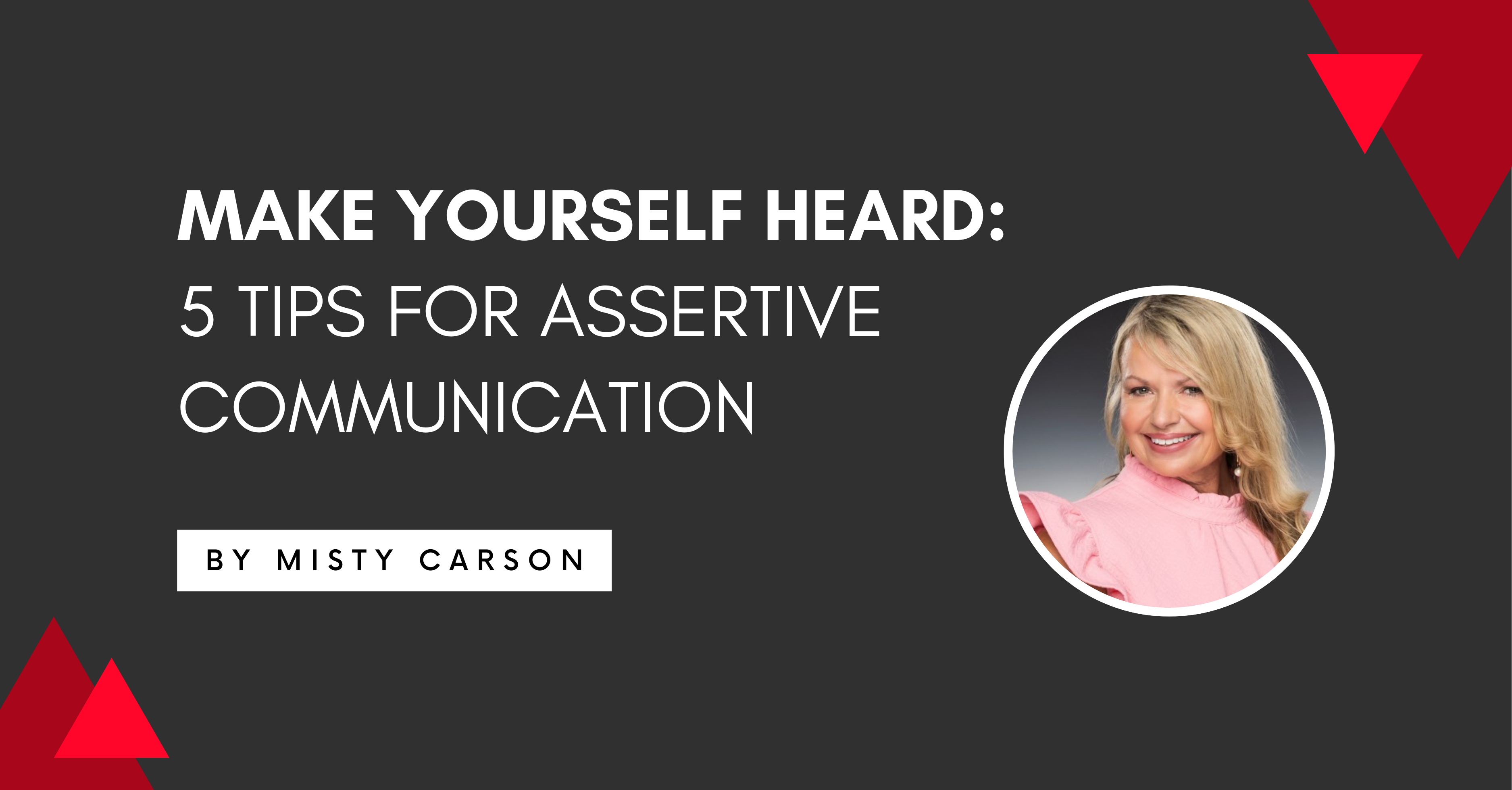Making yourself heard is crucial at every career stage, but it takes time to master. Misty Carson shares her top tips for building assertive communication skills.
.png?width=350&height=350&name=Gabrielle%20Rodriguez%20(2).png)
At every stage of your career, making yourself heard is crucial, but it’s not a skill you master overnight. It evolves with experience and takes different forms as you grow. I’ve learned this firsthand.
Fresh out of college, I found myself managing a team of all ages. I quickly realized that confidence and clarity were key to earning respect.
As I moved into mid-management, my focus shifted to client relationships. I learned to navigate different personalities while maintaining authority and professionalism, and I excelled.
But in senior management, I hit a roadblock. Despite my experience, I struggled to get people to listen. I spent hours preparing for meetings, only to be talked over before I could fully deliver.
At first, I accepted it as company culture. No one was singling me out. It was just how things worked. But after months of frustration, I had a realization: I was promoted to this role for a reason. My insights and voice are needed here. If I don’t speak up, decisions will be made without the full picture.
At this point, I was reporting directly to the company owners. The stakes were high, and I often felt intimidated. But I knew I had to assert myself. Finally, the next time I was interrupted, I respectfully stated that I wasn’t finished talking.
Everything shifted. Not only did I face fewer interruptions, but the overall team dynamic improved. Conversations became more balanced, with less talking over one another. Meetings were more productive, and I was able to present my agenda with confidence and ease.
But I wouldn’t have always been able to do this. Each step in my career has taught me something new about making myself heard.
Here are my top tips for anyone struggling to do the same.
1. Shadow a colleague in higher level meetings.
Take note of how they adjust to various communication styles and handle relationships. Presenting at these meetings yourself may still be daunting, but you’ll have a much better idea of what's expected of you.
2. Do your homework.
Whenever possible, review meeting agendas beforehand. Put in the effort to understand potential clients’ business needs, pain points, and communication styles. This preparation can give you a major confidence boost, which will allow you to communicate more easily and effectively.
3. Don’t be afraid to pause.
When you aren’t immediately sure of your response, take a beat. This commands much more respect than stuffing the silence with filler words or talking in circles. If you truly don’t know an answer, offer to look into it and follow up. Then, send or present to them a thorough and organized follow-up response.4. Take note when you’re caught off guard.
Could you have prepared to answer that question or address that point? Do what you can to fill in those gaps for yourself. If you often find yourself at a loss for words around a certain topic, you might consider if someone from a different department should be involved.
5. Deliver unpleasant news respectfully but directly.
When addressing challenges, whether internally or with clients, be clear about the facts. Skirting the truth to save someone’s feelings can lead to recurring issues if the other party is unclear of expectations or procedures.
Assertive communication isn’t about being the loudest voice in the room. It’s about ensuring your insights are heard and understood, and it’s essential at all career stages. So whether you're stepping into your first leadership role or sitting at the table with senior leaders, remember: you earned your place. Now, own it.
Want to see more stories like this? Subscribe to the WCF newsletter and receive tailored career insights, practical tips, and community updates sent right to your inbox.



-Nov-07-2023-06-38-17-8684-PM.png)